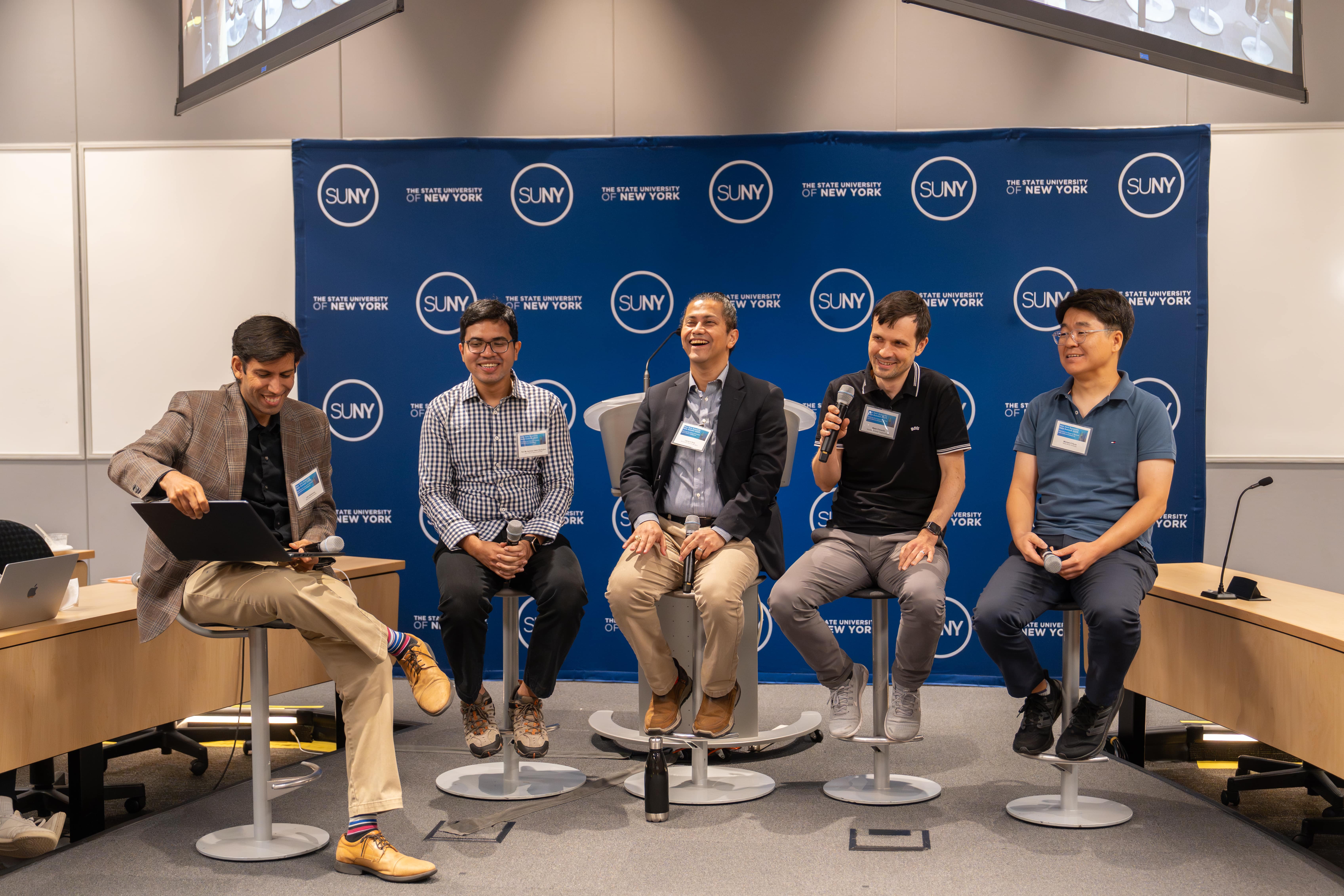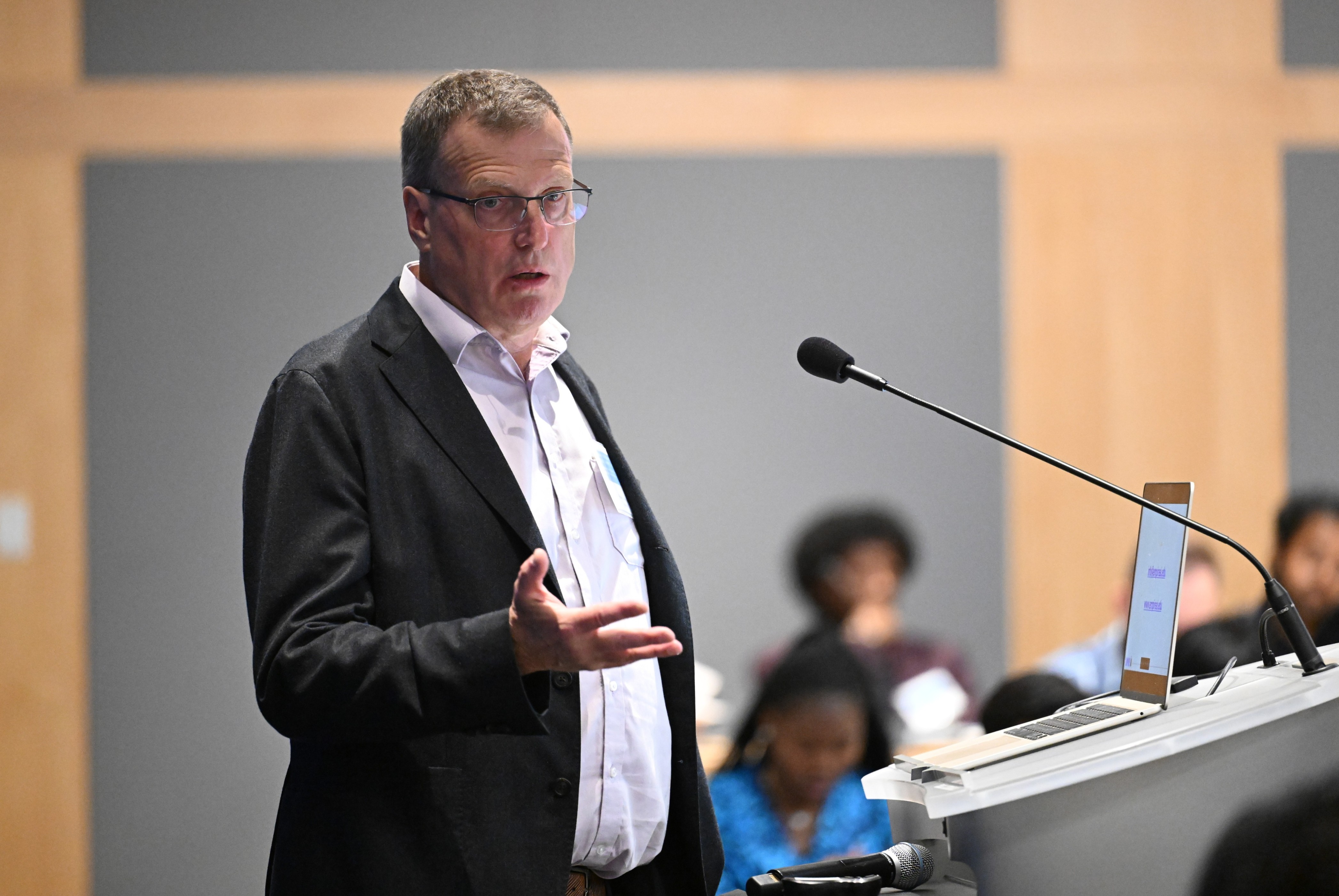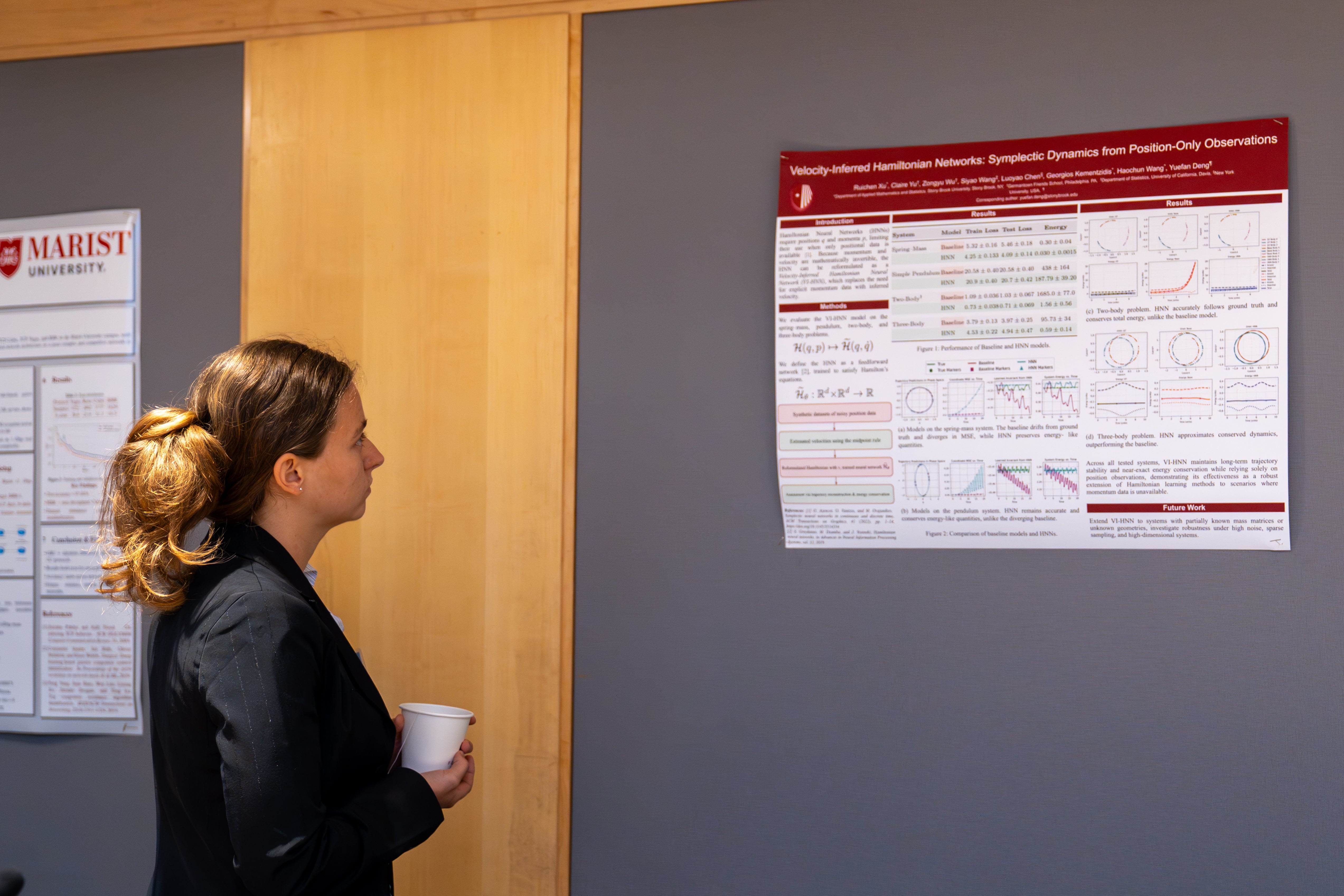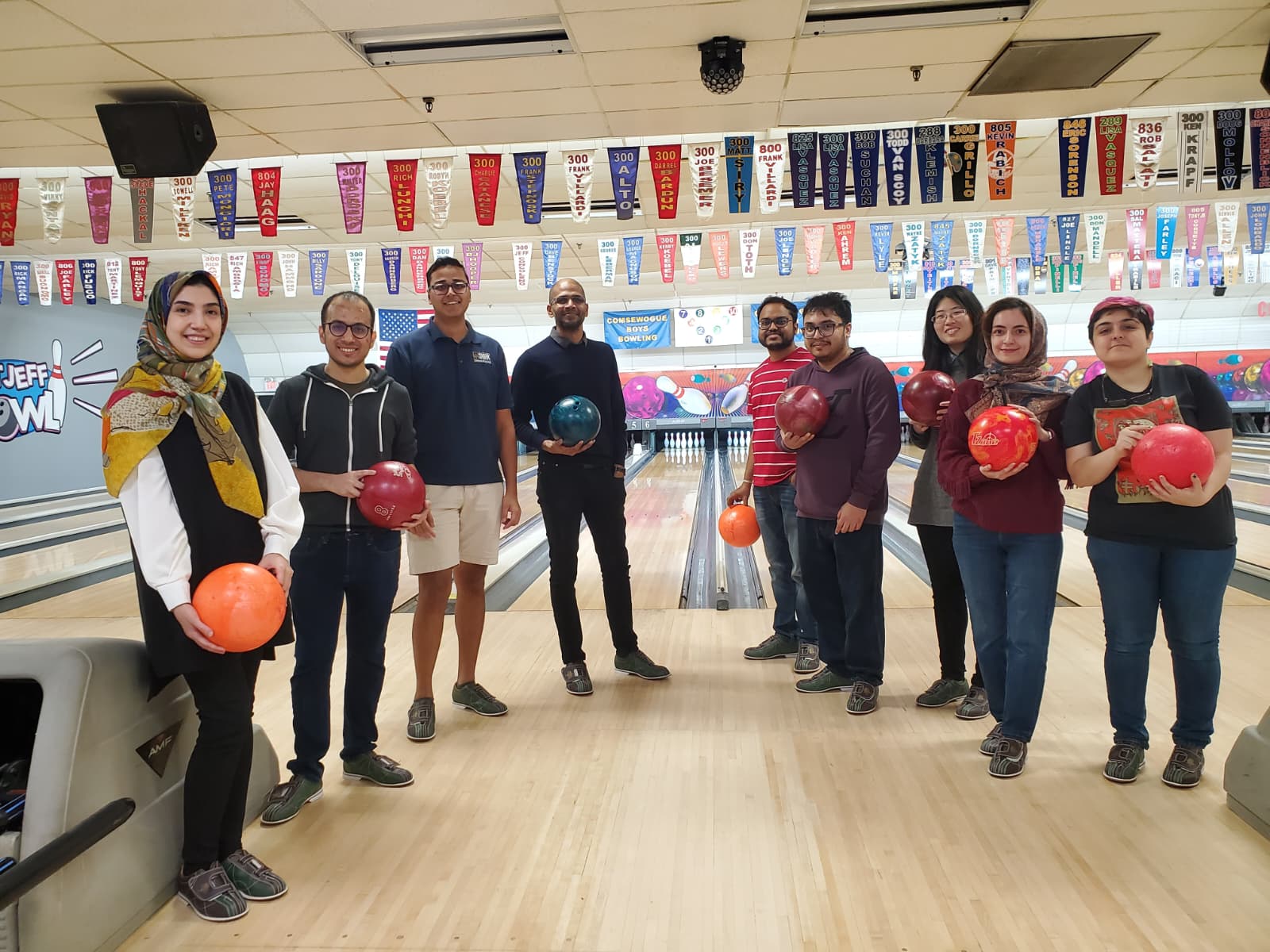State University of New York Chancellor John B. King Jr. today announced the inaugural class of SUNY's AI for the Public Good Fellows. The 20 SUNY faculty and staff fellows are experts in their fields of study – ranging from health sciences to sustainable resources management to English.
Part twelve of our AI Researcher Profile series features Niranjan Balasubramanian, associate professor of Computer Science at Stony Brook University, to discuss his research interests and experience teaching language to artificial intelligence.
Staff Email
Staff Location
Position
Telephone
Staff Image
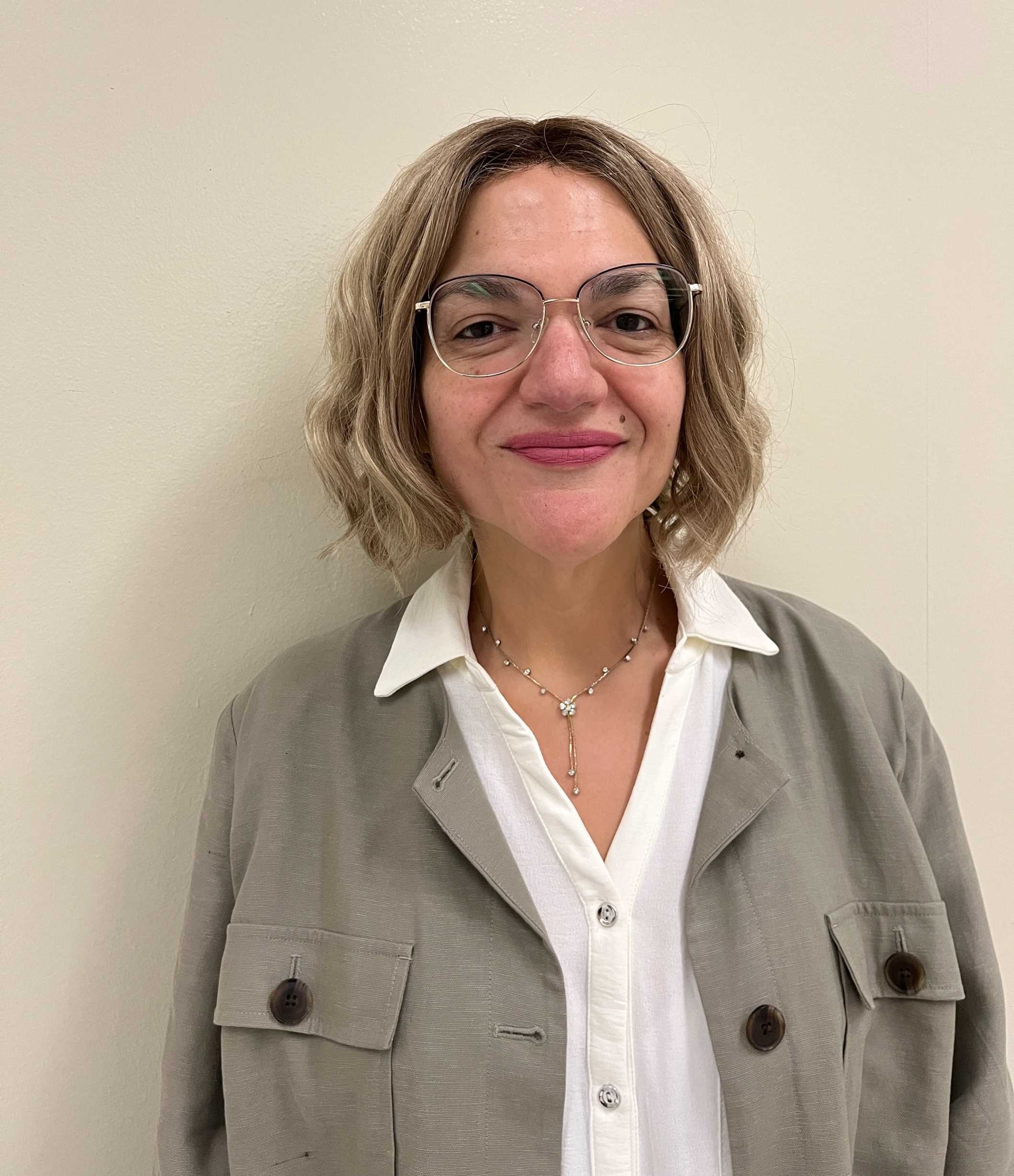
Weight
Staff Protected Email
Stony Brook University researcher Sima Mofakham develops SeeMe, an AI tool that detects subtle facial movements to spot consciousness in brain-injured patients up to four days earlier than doctors. Non-invasive and low-cost, it could be scaled for widespread hospital use and paired with therapies to improve recovery. The program provides an extra layer of insight to guide treatment and support families without replacing clinical judgment.



